01 - Deconstructing the Myth: Nature of Terrorism in the Pakhtun Region (2001-2013)...
http://dx.doi.org/10.31703/gpr.2018(III-I).0110.31703/gpr.2018(III-I).01 Published : Jun 2018
-
The current study is an attempt to identify the true nature of terrorism in the Pakhtun region that mainly took place during 2001-2013. Although the study heavily relies on secondary data analysis, however numerous unstructured interviews and group discussions with experts has also been carried out to thoroughly understand the issue at hand. The study finds that terrorism in the Pakhtun region has... Details
-
Terrorism, Insurgency, Taliban, Nature, Pakhtun Region, Pakistan
-
(1) Abdul Shakoor
Assistant Professor, Department of International Relations, Abdul Wali Khan University Mardan, KP, Pakistan.
02 - China Pakistan Economic Corridor (CPEC): Regional Development, Employment Opport...
http://dx.doi.org/10.31703/gpr.2018(III-I).0210.31703/gpr.2018(III-I).02 Published : Jun 2018
-
A lot of people believe "China Pakistan Economic Corridor (CPEC)" to be a doorway to regional prosperity and regional cohesion. It carries an abundant perspective in relation to regional connectivity, regional development, and employment creation. Although a topic of increasing interest, CPEC has been relatively under-researched and under-conceptualized to date. In this article, we attempt to insp... Details
-
CPEC, Regional development, infrastructure development, employment creation, policy challenges
-
(1) Navid Khan
Ph.D. Scholar,School of Economics & Management,Kunming University of Science & Technology, China.
(2) Riaz Ahmad
Postdoc Fellow, School of Public Policy and Administration,Xiian Jiaotong University, China.
(3) Ke Xing
School of Economics & Management,Kunming University of Science & Technology, China.
03 - An Analysis of Sino-Indian Relations: Modus Operandi or Modus Vivendi...
http://dx.doi.org/10.31703/gpr.2018(III-I).0310.31703/gpr.2018(III-I).03 Published : Jun 2018
-
China and India celebrated their embryonic relations with a documented modus vivendi i.e. “The Panchsheel Agreement”. This concord highlighted five principles of peaceful coexistence between India and China. The Tibet region was the nucleus of this agreement. Nevertheless, after four years of its celebration, eyebrows raised from both sides in 1959 when China started its unification pr... Details
-
Sino-Indian Geo-strategic competition, Modus Vivendi, Modus Operandi, Synergy
-
(1) Asghar Ali
PhD Scholar,Department of Political Science & International Relations, Qurtaba University of Science & IT, Peshawar, KP, Pakistan.
(2) Nazim Rahim
Assistant Professor, Department of Political Science & International Relations,Qurtaba University of Science & IT, Peshawar, KP, Pakistan.
(3) Ghulam Hussain Abid Sipra
PhD Scholar,Department of Political Science,Quaid-e-Azam University, Islamabad, Pakistan.
04 - The Growing Strategic Imbalance between China and Russia in Central Asia: Challe...
http://dx.doi.org/10.31703/gpr.2018(III-I).0410.31703/gpr.2018(III-I).04 Published : Jun 2018
-
Central Asias China growing interdependence and fading role of Russia has provoked contentious debates about the growing strategic imbalance in the region. The empirical data in this research paper demonstrates that the domestic, geostrategic and economic interests motivate the nature of China Central Asia and Russia Central Asia relationship. Chinas pragmatic approach for establishing a comprehen... Details
-
China, Central Asia, Economy, Geo-strategy, Strategic Imbalance, Cross-Border Ethnic Issues
-
(1) Sartaj
PhD Scholar,Department of Political Science, International Islamic University, Islamabad, Pakistan.
(2) Uzma Siraj
PhD Scholar,Department International Relations,International Islamic University Islamabad, Islamabad, Pakistan.
(3) Uroosa Ishfaq
MPhil Scholar, Department of Political Science,Abdul Wali Khan University, Mardan, KP, Pakistan.
05 - Engineering Electoral Design in Terms of Globalization of Institutions: A Case S...
http://dx.doi.org/10.31703/gpr.2018(III-I).0510.31703/gpr.2018(III-I).05 Published : Jun 2018
-
Pakistan needs reforms in electoral institutions inherited from the colonial era which have minimal roots in its diverse soil led to political wrangling in federating units for more representational space in the federal structure. Conflict management through the engineering of an inclusive electoral system in Pakistan is the aim of this paper. The challenge of changing demographics and the demand ... Details
-
Alternative Vote (AV), Electoral Globalization, Colonial Plantation, Regional Imitation, Preferential Vote (PV)
-
(1) Lubna Batool
Lecturer,Department of Political Science,University of Gujrat, Punjab, Pakistan.
(2) Manzoor Ahmad
Assistant Professor,Department of Political Science, Abdul Wali Khan University, Mardan, KP, Pakistan.
(3) Syed Ali Shah
Assistant Professor, Department of Pakistan Studies, Abdul Wali Khan University, Mardan, KP, Pakistan.
06 - Can Openness Hypothesis Improve Political Economy of Pakistans Financial Market?...
http://dx.doi.org/10.31703/gpr.2018(III-I).0610.31703/gpr.2018(III-I).06 Published : Jun 2018
-
This paper is an attempt to test the openness hypothesis for the case of Pakistan. Being a developing country and having different interest groups interfering in the financial market, openness hypothesis provides a theory that provides a win-win situation for the interest groups, consequently improving financial development. We presented a political economy approach of analyzing the state of Pakis... Details
-
Financial Development, Openness hypothesis, Political economy, Regression analysis, Financial Liberalization, Trade openness.
-
(1) Jawad Ahmad
Research Associate, University of Kassel, Hessen, Germany.
(2) Sania Zehraa
Research Scholar, International Islamic University, Islamabad, Pakistan.
(3) Noor Jehan
Assistant Professor,Department of Economics,Abdul Wali Khan University, Mardan, KP, Pakistan.
07 - What is Democracy? Challenges for Democracy in Pakistan...
http://dx.doi.org/10.31703/gpr.2018(III-I).0710.31703/gpr.2018(III-I).07 Published : Jun 2018
-
This article aims to explore what democracy is and what are the key tools for the success of democracy. Democracy is a famous form of government in contemporary world politics. There are few key characteristics of true democracy, for instance; free and fair elections, the role of media, education, judiciary, political parties, and religious tolerance, etc. Pakistan has experienced authoritative an... Details
-
Democracy, Education, Media, Judiciary, Religious Freedom, Tolerance.
-
(1) Fozia Bibi
PhD scholar,National Defence University, Islamabad, Pakistan.
(2) Sumbal Jameel
Research Scholar, Department of Political Science,Abdul Wali Khan University, Mardan, KP, Pakistan.
(3) Syed Umair Jalal
MPhil Scholar,Department of Political Sciences,University of Peshawar, KP, Pakistan.
08 - Determinants of Pakistanââ¬â¢s Foreign Policy with Respect to Russia'...
http://dx.doi.org/10.31703/gpr.2018(III-I).0810.31703/gpr.2018(III-I).08 Published : Jun 2018
-
Pakistan and Russia have a history of divergence and ambiguity in their foreign policies. Since Independence Pakistans policy towards Russia remained complex and contradictory. Historically there were highs and lows in their relationship, but uncertainty prevails in their approaches. This was due to Pakistans western inclination and Russias pro-India alliance. However, the relationship was revital... Details
-
Foreign Policy, Realism, Institutionalism, Liberalism, Constructivism
-
(1) Jazib Mumtaz
PhD Scholar,Department of Social Sciences, SZABIST Karachi, Sindh, Pakistan.
(2) Muhammad Ramzan
Assistant Professor, Department of Social Sciences, SZABIST Karachi, Sindh, Pakistan.
(3) Saima Gul
Lecturer,Department to IR,University of Peshawar, KP, Pakistan.
09 - Transformations in the Middle East: Implications for Pakistan...
http://dx.doi.org/10.31703/gpr.2018(III-I).0910.31703/gpr.2018(III-I).09 Published : Jun 2018
-
The regional security matrix of the Middle East is facing serious challenges since the US invasion of Iraq, which has left a deep impact on the regional balance of power. A hostile nation towards Iran becomes an ally after the fall of the Saddam regime. Things are changing rapidly when several series of protests across the Arab and African region erupted since 2011 with the Tunisian revolution to ... Details
-
Arab Spring, Regime Change, Balance of Power
-
(1) Muhammad Shoaib Malik
Assistant Professor,Department of Pakistan Studies, National University of Modern Languages, Islamabad, Pakistan.
(2) Waseem Ishaque
Assistant Professor, Department of IR,National Defence University, Islamabad, Pakistan.
(3) Syed Ali Shah
Assistant Professor,Department of Pakistan Studies,Abdul Wali Khan University, Mardan, KP, Pakistan.
10 - China's Growing Strategic Interests in Afghanistan...
http://dx.doi.org/10.31703/gpr.2018(III-I).1010.31703/gpr.2018(III-I).10 Published : Jun 2018
-
China is giving a push to the reconciliation process among the Taliban and the Afghan government. As well as working on trilateral relations of Pakistan, Afghanistan, and China. China is looking for CPEC expansion to Afghanistan through Pakistan, for which China seeks to explore the ways of reconciliation in Afghanistan among the Taliban and the Afghan government. US wants his long stay in Afghani... Details
-
China, Afghanistan, Strategic interests, reconstruction and reconciliation, Belt and Road Initiative.
-
(1) Huma Qayum
PhD Scholar,Department of Political Science and International Relations at International Islamic University IslaPakistan.
(2) Syed Umair Jalal
MPhil Scholar,Department of Political Science, University of Peshawar, KP, Pakistan
(3) Uroosa Ishfaq
MPhil Scholar,Department of Political Science,Abdul Wali Khan University, Mardan, KP, Pakistan.
11 - Pax Sinica in Asia: Chinas Emergent Geopolitics of Economic Corridors and Dream ...
http://dx.doi.org/10.31703/gpr.2018(III-I).1110.31703/gpr.2018(III-I).11 Published : Jun 2018
-
This article explores the features of Chinas hegemonic ambitions which include more economic power than its rivals and the impact of international institutions on the interstate system. As a result, China has achieved Asias first tier of a hegemon, but influence over the global institutional framework is still underway. The eradication of the Pax Americana, however, must slowly materialize in line... Details
-
Sino-centric, Economic Corridors, Heartland, OBOR, CPEC.
-
(1) Muhammad Muzaffar
Assistant Professor,Department of Political Science,GC Women University Sialkot, Punjab, Pakistan.
(2) Syed Tanveer Ali Shah
MPhil Scholar, International Relations, University of the Punjab Lahore, Punjab, Pakistan.
(3) Zahid Yaseen
Assistant Professor, Department of Political Science,GC Women University Sialkot, Punjab, Pakistan.
12 - Politics of Ethnicities and Federating Issues in Pakistan: Changing Geopolitical...
http://dx.doi.org/10.31703/gpr.2018(III-I).1210.31703/gpr.2018(III-I).12 Published : Jun 2018
-
Keeping in view the multi-ethnic structure of Pakistan, the federal structure is designed in the country. Circumstantial evidence suggests that smaller ethnicities are not satisfied within the structure and therefore, crises and disturbances are continuously being witnessed. The ethnic factor becomes more visible, impacting not only the internal politics of Pakistan but also its evolving regional ... Details
-
Ethnicity, Federation, Region, Geopolitics, Pakistan, Pashtuns, Baluchs Nationalism
-
(1) Shaista Taj
PhD Sholar, Qurtuba University, Peshawar, KP, Pakistan
(2) Zahir Shah
Assistant Professor,Department of Political Science, Abdul Wali Khan University, Mardan, KP, Pakistan.
(3) Muhammad Bilal
Assistant Registrar, Women University Swabi, Swabi, KP, Pakistan.
13 - China's Debt Diplomacy and China-Pakistan Economic Corridor (CPEC): Implications...
http://dx.doi.org/10.31703/gpr.2018(III-I).1310.31703/gpr.2018(III-I).13 Published : Jun 2018
-
China has been investing in several countries under the ambit of BRI and regional economic corridors. The basic spirit behind such an initiative is to benefit the world from Chinas peaceful rise. However, the potential implications of the Debt Trap have been voiced, especially when the issue of Hambantota came to the limelight. This research article discusses the "potential debt trap", widely bein... Details
-
CPEC, Infrastructure development, Debt Trap
-
(1) Waseem Ishaque
Assistant Professor, Department of IR,National Defence University, Islamabad, Pakistan.
(2) Aman Ullah
Ministry of Interior, Government of Pakistan, Islamabad, Pakistan.
(3) Safia
Lecturer,Department of Political Science,Abdul Wali Khan University, KP, Pakistan.
14 - Investigating Link between Modernization and the Dynamics of Political Instituti...
http://dx.doi.org/10.31703/gpr.2018(III-I).1410.31703/gpr.2018(III-I).14 Published : Jun 2018
-
The notion of change in the political institution is associated with multifarious factors. In the current scenario, modernization is one of the foremost factors which transformed the diverse aspects of political institution. This paper is an attempt to shed light on the impact of modernization on the political institution. The quantitative research strategy has been adopted in this research. The d... Details
-
Change, Masses, Modernization, Political, Social
-
(1) Imran
Lecturer (Sociology), Department of Social and Gender Studies, University of Swat, Swat, KP, Pakistan
(2) Mamoon Khan Khattak
Assistant Professor, Department of Social Work and Sociology, Kohat University of Science and Technology (KUST), Kohat, KP, Pakistan.
(3) Azad Ullah
Lecturer, Department of Social Work and Sociology, Kohat University of Science and Technology (KUST), Kohat, KP, Pakistan.
15 - Pakistan's Transition to Civilian Rule: Analysis of Zia Years...
http://dx.doi.org/10.31703/gpr.2018(III-I).1510.31703/gpr.2018(III-I).15 Published : Jun 2018
-
Existing literature on democratization suggests that societies once exposed to democratic liberties develop a deep spirit of resistance. This spirit of resistance is manifested in various movements for the restoration of democracies whenever democratic liberties are taken away by military dictatorships. This paper investigates this spirit of resistance during General Zia's era. It is argued here t... Details
-
Pakistan, Democracy, Martial Law, Zia Years, Democratization, Military
-
(1) Adil Khan
Lecturer, Department of Pakistan Studies, Hazara University, Mansehra, KP, Pakistan.
(2) Muhammad Imran
Assistant Professor, Department of English, Government College Havelian Abbottabad, KP, Pakistan.
(3) Nazakat
Lecturer, Department of English, Hazara University, Mansehra, KP, Pakistan.
16 - Internal Displacement and Migration issues in FATA (2007-2016)...
http://dx.doi.org/10.31703/gpr.2018(III-I).1610.31703/gpr.2018(III-I).16 Published : Jun 2018
-
With the start of the War on Terror in October 2001, the tribal belt of Pakistan, known as Federally Administered Tribal Areas (FATA), witnessed a rise in militancy. Numerous military actions have been carried out in different agencies of former FATA to eliminate militants. Millions of people have been displaced from all seven agencies and six Frontier Regions. Many people have been displaced more... Details
-
IDPs, T.D.P.s, FATA, Displacement, Migration, Afghanistan
-
(1) Sohail Ahmad
Assistant Professor, Department of Humanities, COMSATS Institute of Information Technology Islamabad, Pakistan.
(2) Muhammad Mubeen
Assistant Professor, Department of Humanities, COMSATS Institute of Information Technology Islamabad, Pakistan.
(3) Inayat Kalim
Assistant Professor, Department of Humanities, COMSATS Institute of Information Technology Islamabad, Pakistan.
17 - Contesting the Representation of Muslim Women: A Discursive Exploration of Relig...
http://dx.doi.org/10.31703/gpr.2018(III-I).1710.31703/gpr.2018(III-I).17 Published : Jun 2018
-
Important as religion is to behave socially, its complex nature has remained the staple concern of literary narratives. The enigma of religion is particularly evident in the life narratives of Malala Yousafzai (I Am Malala, 2013) and Ziauddin Yousafzai (Let Her Fly 2018). The selected texts have been studied using the Theory of Representation (1997) to investigate there presentation of Islam by ap... Details
-
Postcolonial Perspective, Stereotypes, Representation, Binary Dichotomy, Science, Faith, Religion
-
(1) Aisha Jadoon
Assistant Professor, Department of Humanities, COMSATS University, Islamabad, Pakistan.
(2) Oroosa Anwar
MS Scholar, Department of Humanities, COMSATS University, Islamabad, Pakistan
(3) Kanwal Zahra
Assistant Professor, Centre for Languages and Translation Studies, University of Gujrat, Punjab, Pakistan

 Volume X, Issue IV (Fall 2025)
Volume X, Issue IV (Fall 2025) 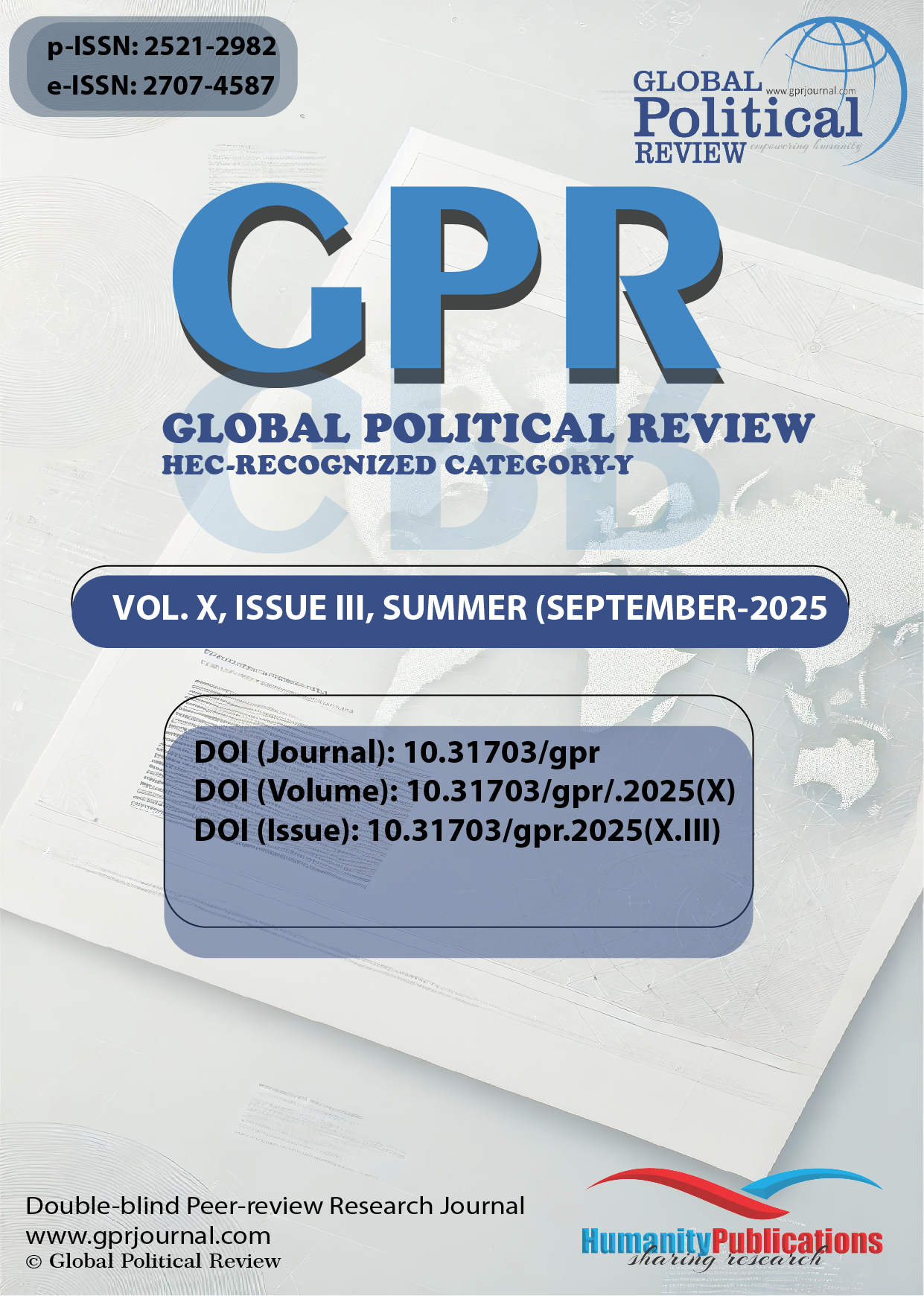 Volume X, Issue III (Summer 2025)
Volume X, Issue III (Summer 2025) 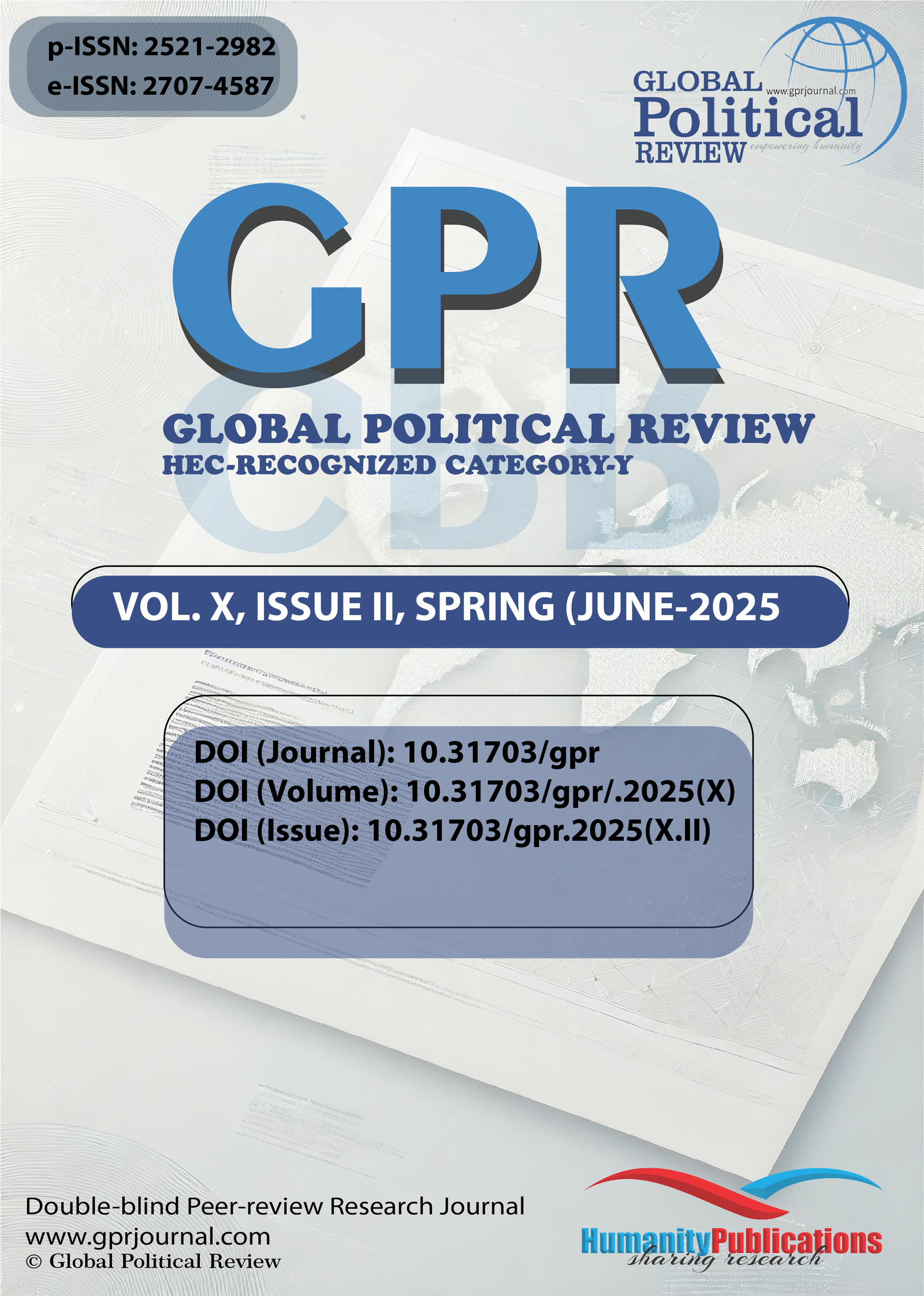 Volume X, Issue II (Spring 2025)
Volume X, Issue II (Spring 2025)  Volume X, Issue I (Winter 2025)
Volume X, Issue I (Winter 2025)  Volume IX, Issue IV (Fall 2024)
Volume IX, Issue IV (Fall 2024)  Volume IX, Issue III (Summer 2024)
Volume IX, Issue III (Summer 2024)  Volume IX, Issue II (Spring 2024)
Volume IX, Issue II (Spring 2024)  Volume IX, Issue I (Winter 2024)
Volume IX, Issue I (Winter 2024) 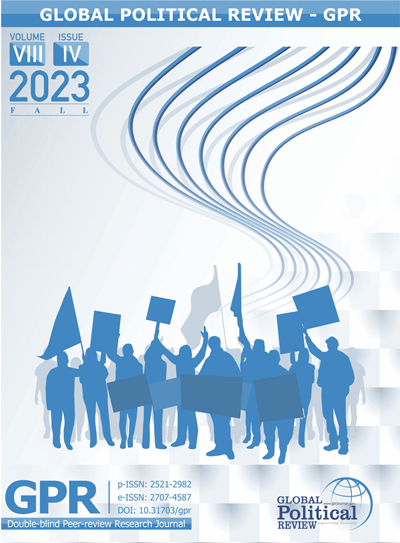 Volume VIII, Issue IV (Fall 2023)
Volume VIII, Issue IV (Fall 2023)  Volume VIII, Issue III (Summer 2023)
Volume VIII, Issue III (Summer 2023)  Volume VIII, Issue II (Spring 2023)
Volume VIII, Issue II (Spring 2023) 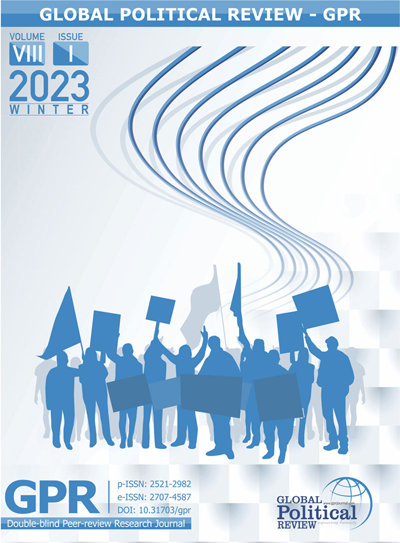 Volume VIII, Issue I (Winter 2023)
Volume VIII, Issue I (Winter 2023) 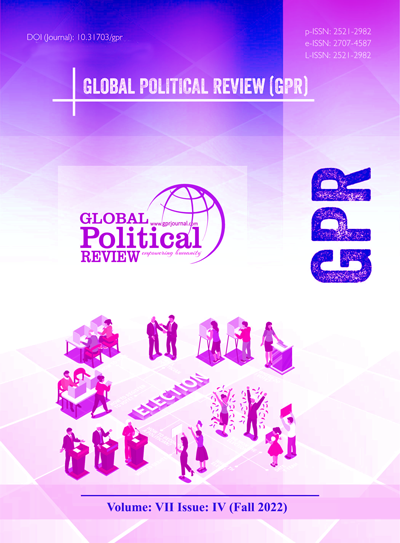 Volume VII, Issue IV (Fall 2022)
Volume VII, Issue IV (Fall 2022)  Volume VII, Issue III (Summer 2022)
Volume VII, Issue III (Summer 2022)  Volume VII, Issue II (Spring 2022)
Volume VII, Issue II (Spring 2022)  Volume VII, Issue I (Winter 2022)
Volume VII, Issue I (Winter 2022) 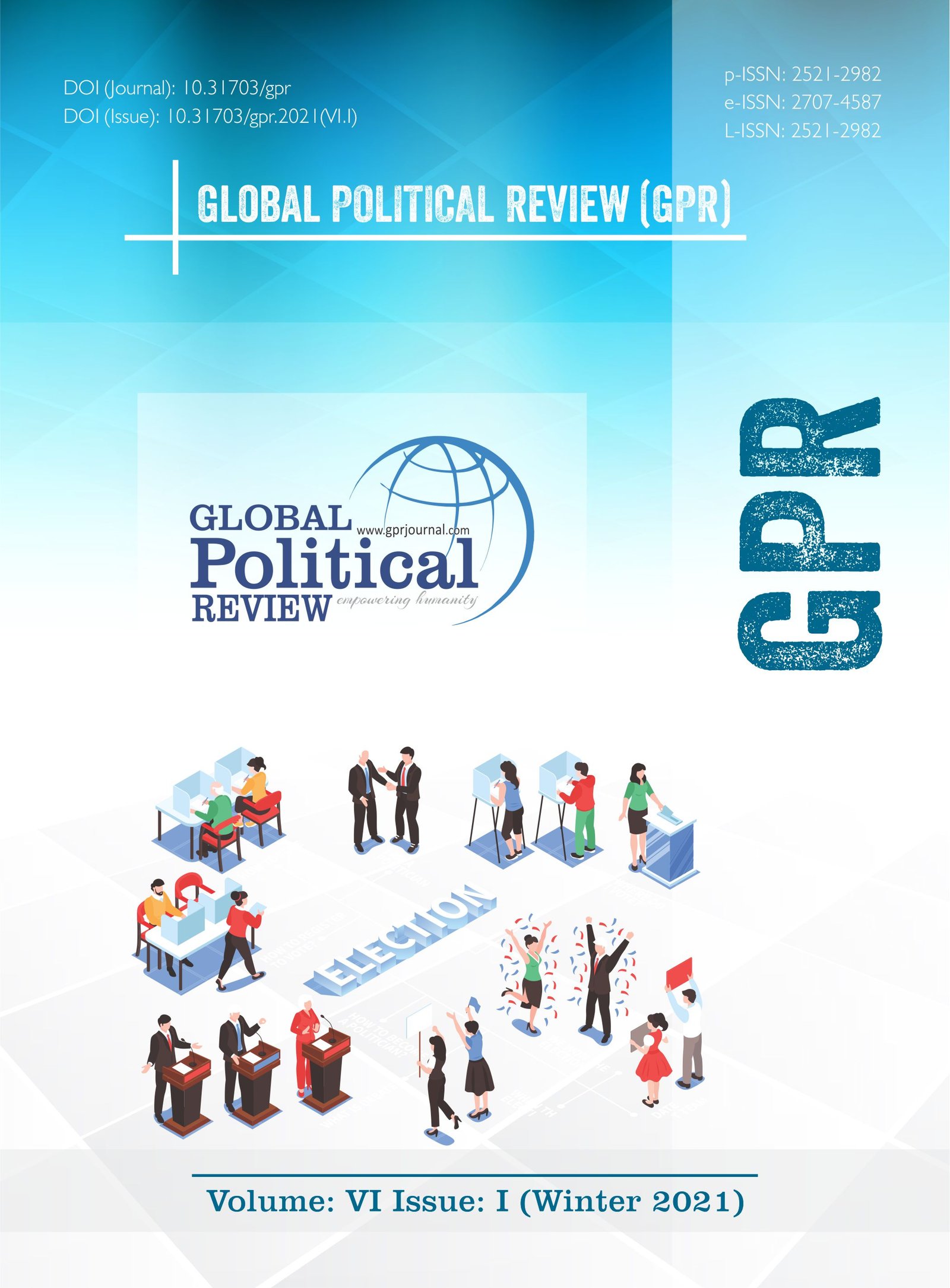 Volume VI, Issue IV (Fall 2021)
Volume VI, Issue IV (Fall 2021) 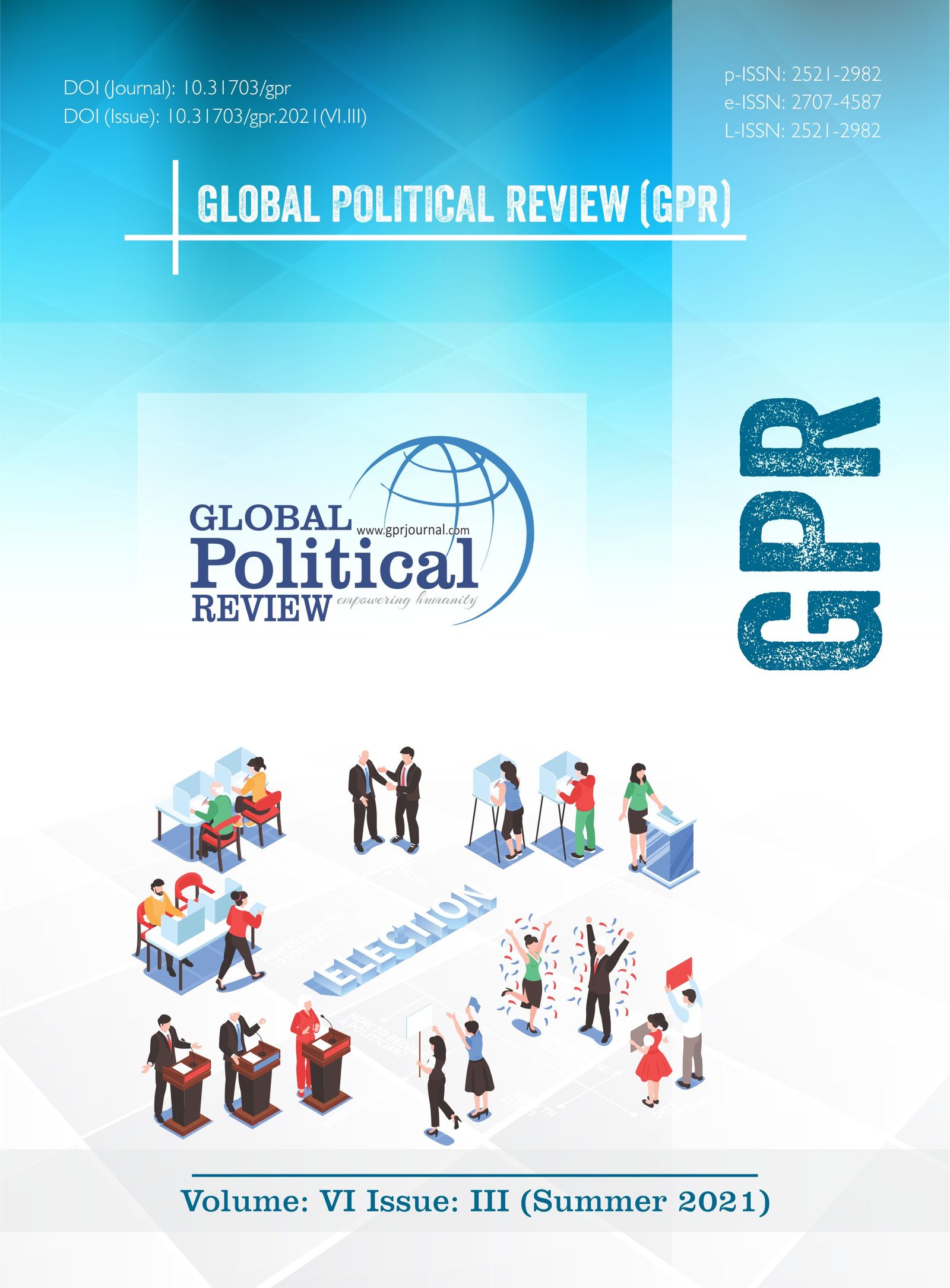 Volume VI, Issue III (Summer 2021)
Volume VI, Issue III (Summer 2021)  Volume VI, Issue II (Spring 2021)
Volume VI, Issue II (Spring 2021) 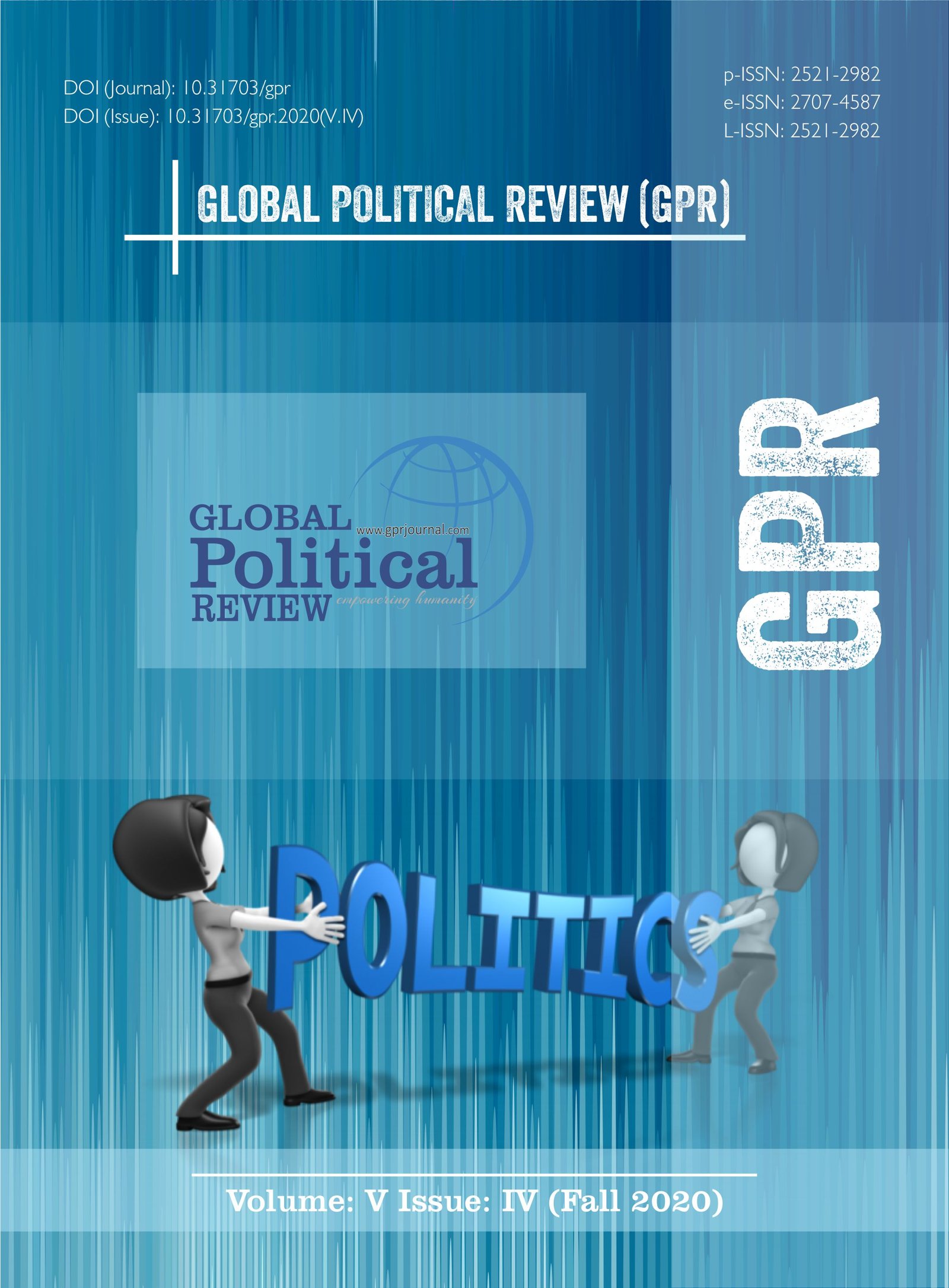 Volume V, Issue IV (Fall 2020)
Volume V, Issue IV (Fall 2020)  Volume V, Issue III (Summer 2020)
Volume V, Issue III (Summer 2020) 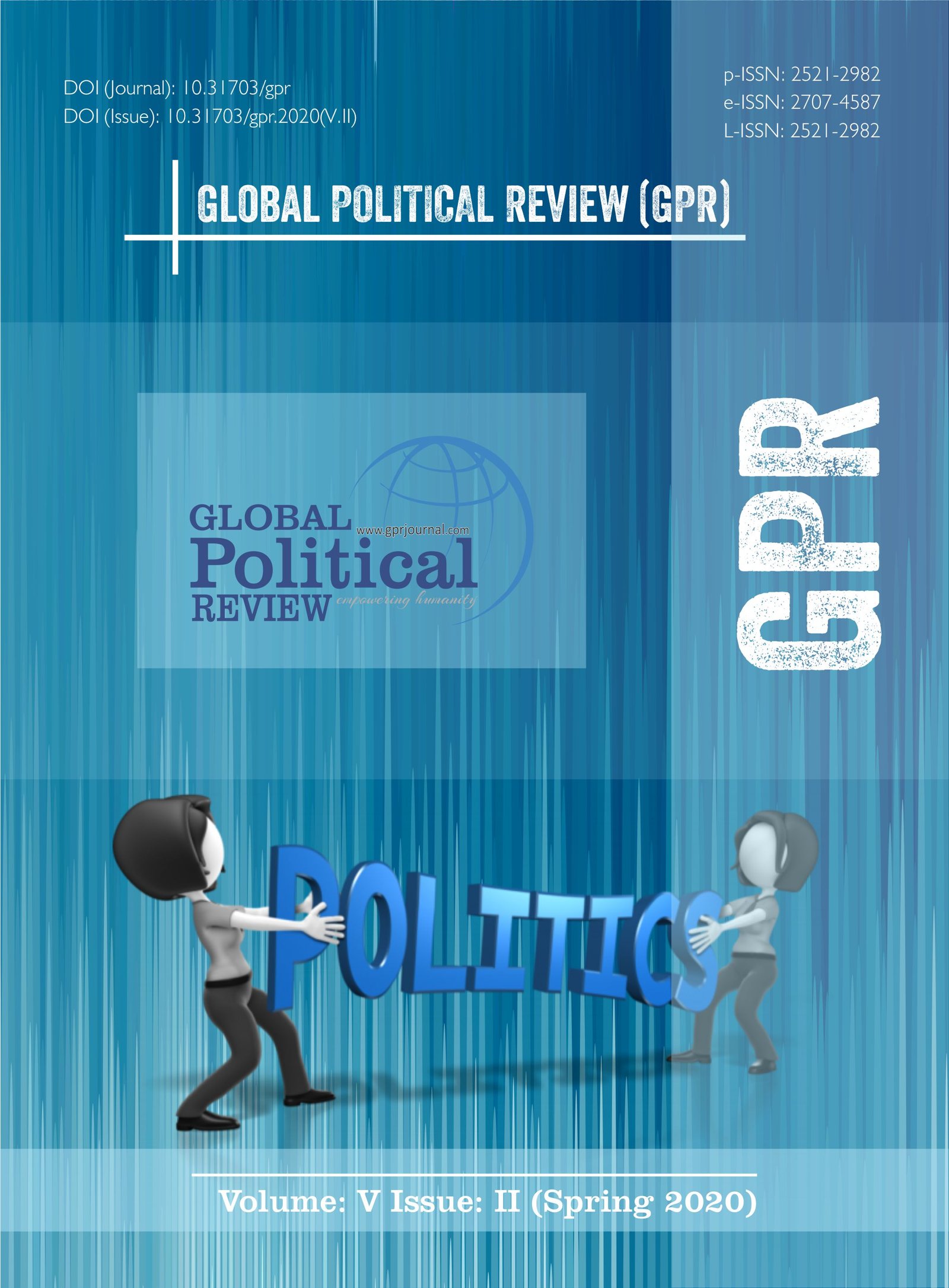 Volume V, Issue II (Spring 2020)
Volume V, Issue II (Spring 2020) 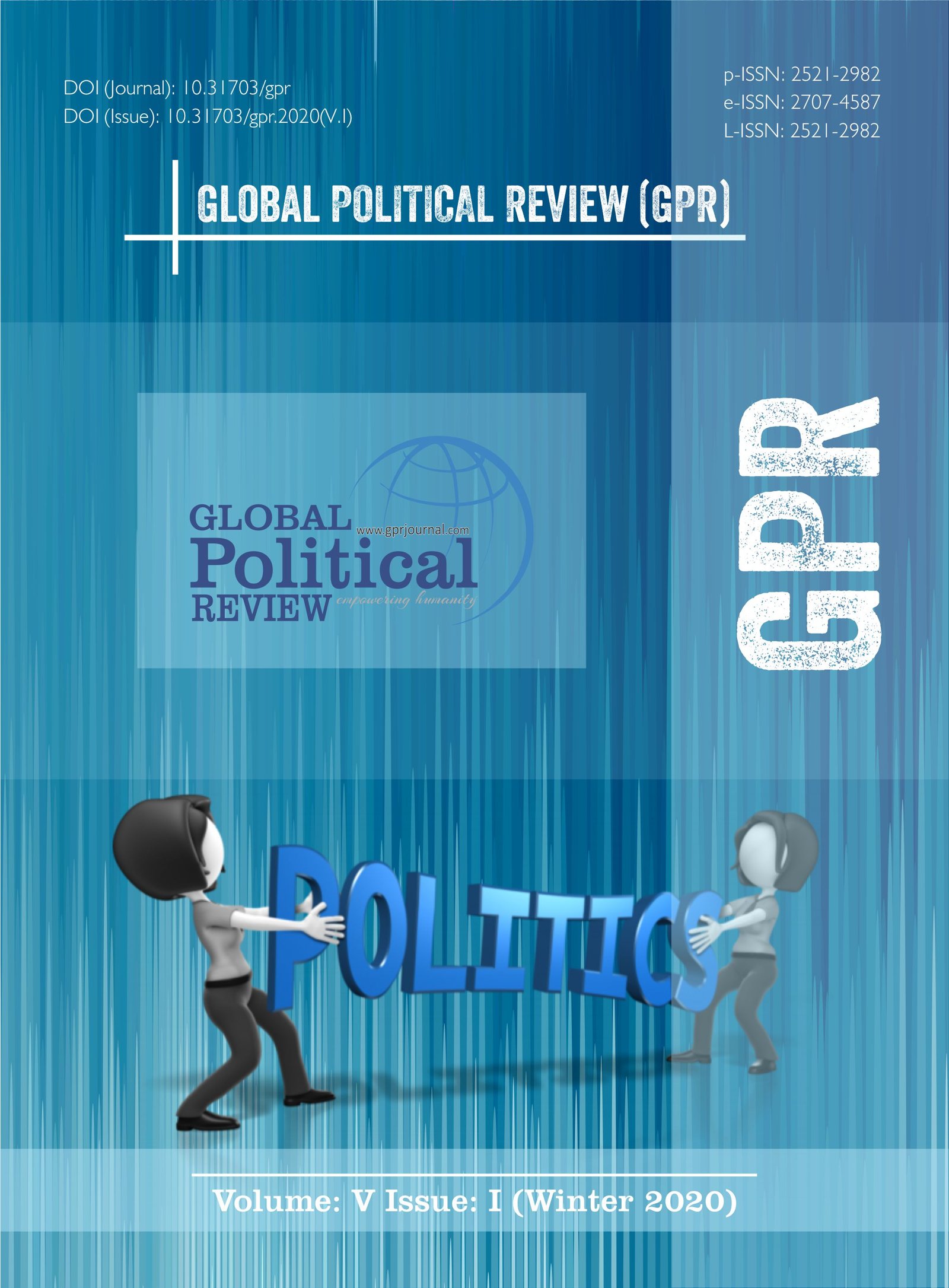 Volume V, Issue I (Winter 2020)
Volume V, Issue I (Winter 2020)  Volume IV, Issue IV (Fall 2019)
Volume IV, Issue IV (Fall 2019)  Volume IV, Issue III (Summer 2019)
Volume IV, Issue III (Summer 2019)  Volume IV, Issue II (Spring 2019)
Volume IV, Issue II (Spring 2019) 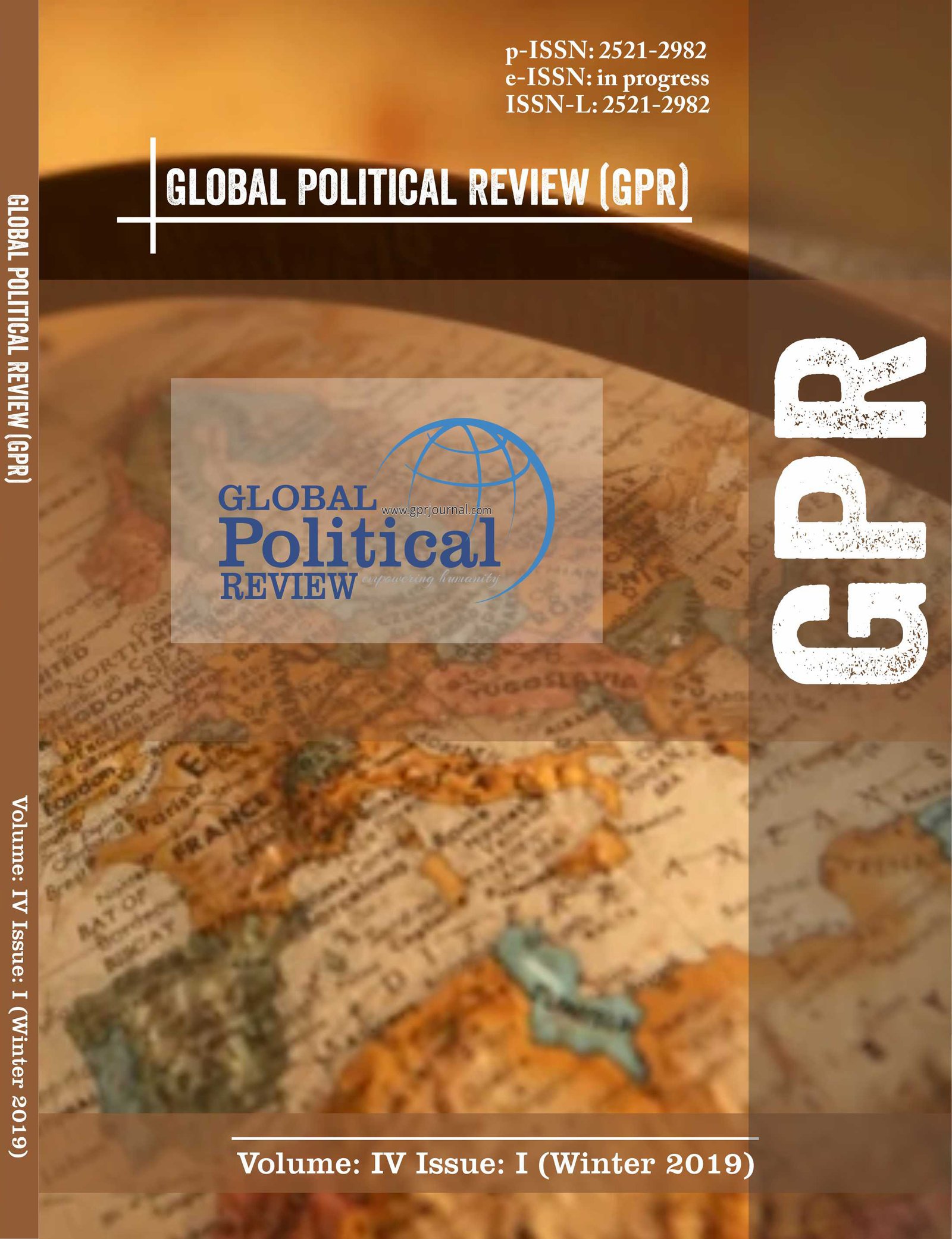 Volume IV, Issue I (Winter 2019)
Volume IV, Issue I (Winter 2019) 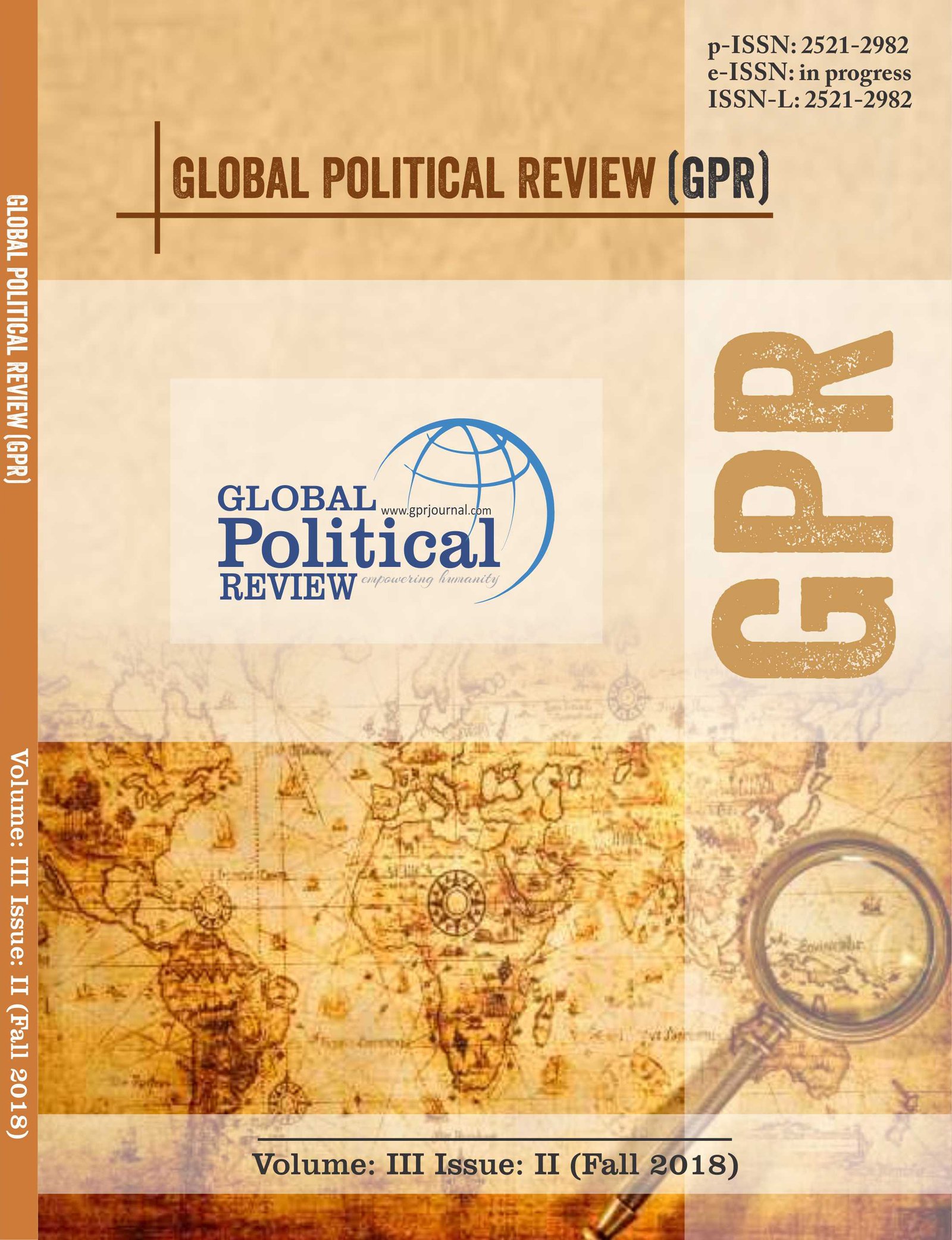 Volume III, Issue II (Fall 2018)
Volume III, Issue II (Fall 2018) 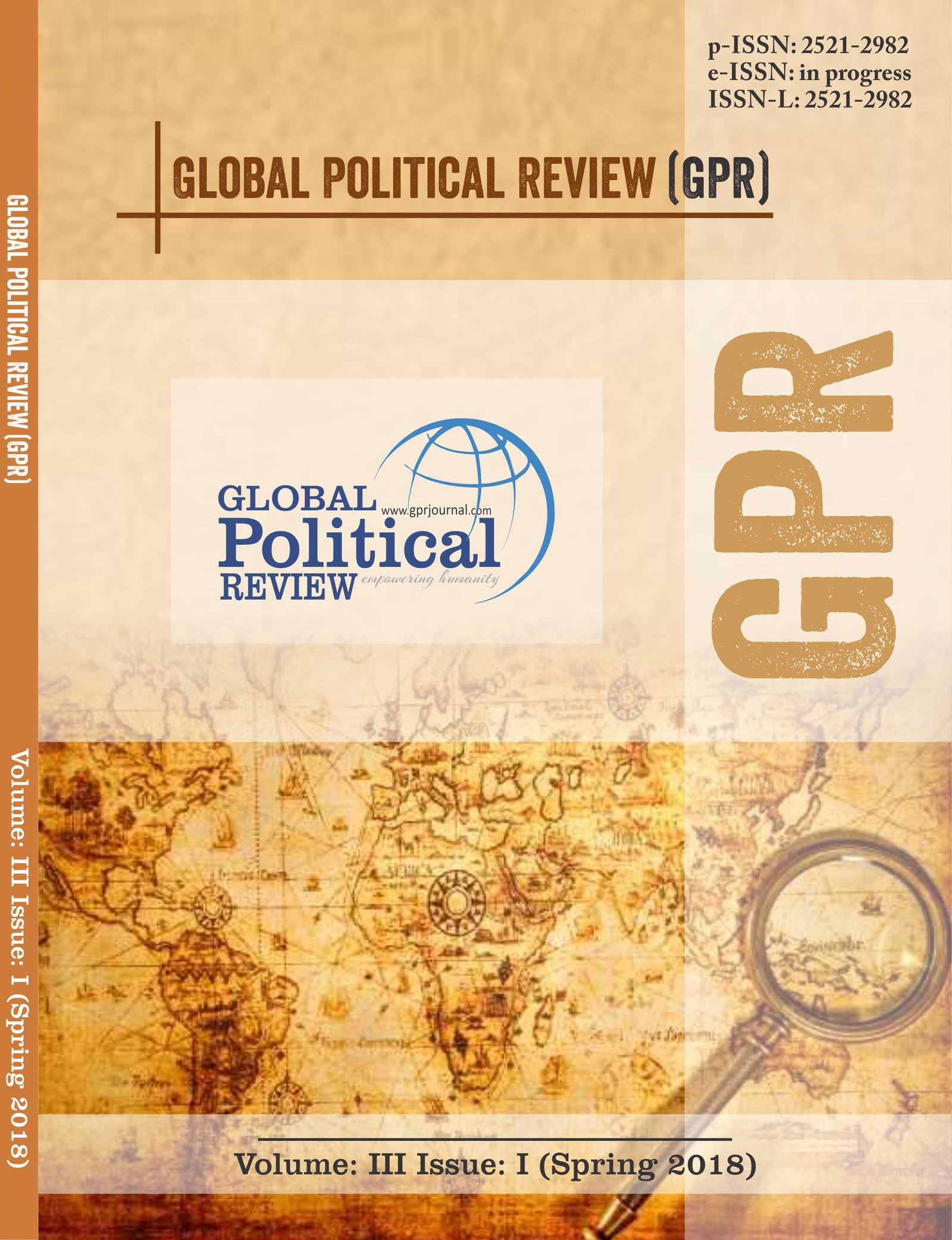 Volume III, Issue I (Spring 2018)
Volume III, Issue I (Spring 2018)  Volume II, Issue I (Fall 2017)
Volume II, Issue I (Fall 2017)  Volume I, Issue I (Fall 2016)
Volume I, Issue I (Fall 2016)